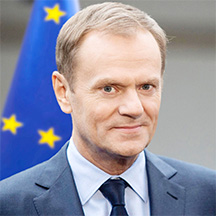BRUSSELS (Reuters) – European Union leaders concluded a summit early today that was expected to back offers of new aid for Syrian refugees and also patch up bitter divisions over the migration crisis.
Leaders will announce results of the discussions shortly.

Meeting a day after their interior ministers overrode furious objections from four eastern states in a vote that will distribute asylum-seekers around the bloc according to mandatory national quotas, government leaders tried to focus on ways to curb the inflow of migrants that has hit records this summer.
Feelings have been running high as chaotic crowds and varied responses from national capitals have seen borders close inside Europe’s cherished passport-free Schengen zone. Many leaders are under pressure to shore up their domestic support by stressing their defence of their own national interests.
“Today … a concrete plan must finally appear in place of the arguments and the chaos we have witnessed in the last weeks,” said European Council President Donald Tusk before he chaired the 28 leaders’ first full EU summit in three months. Starting shortly before dinner yesterday, they talked for nearly seven hours in what some diplomats said was a relatively cordial atmosphere considering recent tensions.
“Really good talks … today,” tweeted Estonian Prime Minister Taavi Roivas. “Some developments at early stage but EU united to find a common European solution.”
On a day when the Greek island of Lesbos saw 2,500 people land in dozens of dinghies from Turkey, Tusk said arrivals that already exceed half a million this year were likely to increase and that Europe must “regain control of our external borders” or risk destroying the Schengen system and the “European spirit”.
He forecast agreement on more help for refugees who stay in the Middle East, via funds for UN agencies, Turkey, Jordan, Lebanon and others. “Frontline” states like Greece and Italy should also get help on their frontiers – notably to register new arrivals and deport those who do not qualify for asylum.
German Chancellor Angela Merkel, accused by some of her neighbours of fuelling the migrant influx by announcing last month that Germany would take in more Syrians, stressed on arrival that it was time for Europeans to work together. “Faced with a great challenge, it cannot be that Europe says ‘We can’t handle this’,” Merkel said.
“That’s why I say again and again: We can do this.”
Re-elected Greek Prime Minister Alexis Tsipras and Italian Prime Minister Matteo Renzi heard calls from the north to use new EU support — both in money and manpower — to tighten controls on the bloc’s Mediterranean frontiers.
Establishing a principle of “relocating” some asylum-seekers has been a key demand of Rome in particular, which wants to end a rule that states they should remain in the first EU state they enter. Northern countries accuse Italy and Greece of undermining the Schengen area by simply letting migrants move on unchecked.
Renzi said a package of EU-run relocations and deportations and EU-funded frontier forces meant Rome’s partners had finally accepted demands it has been making for years to spread the load of migrant arrivals from Africa onto southern Italian islands.
Hungarian Prime Minister Viktor Orban gave a robust defence of the razor-wire fencing he has erected to keep out migrants; he insisted he was only following EU rules and said that if Greece could not defend its borders, Athens should ask for help.
On a visit to Germany earlier in the day, Orban accused Berlin of “moral imperialism” for encouraging Syrian refugees to try and reach the German frontier. But in Brussels he said he would not criticise Germany whom he praised as a valued partner.





